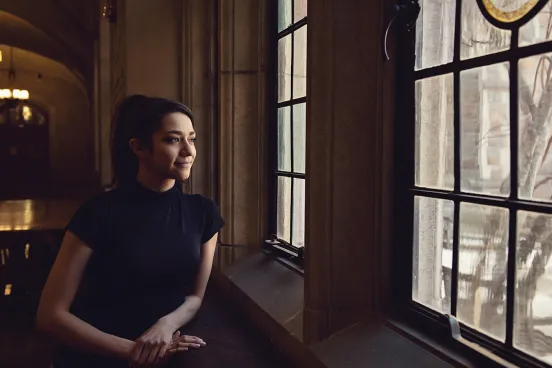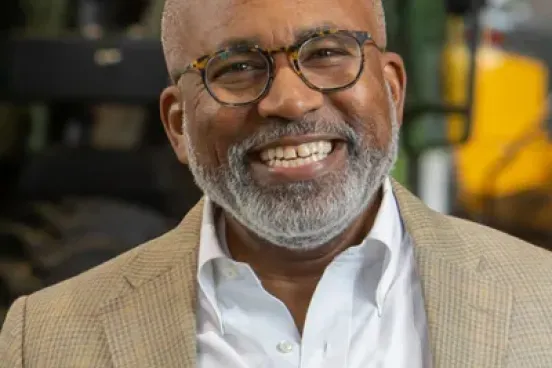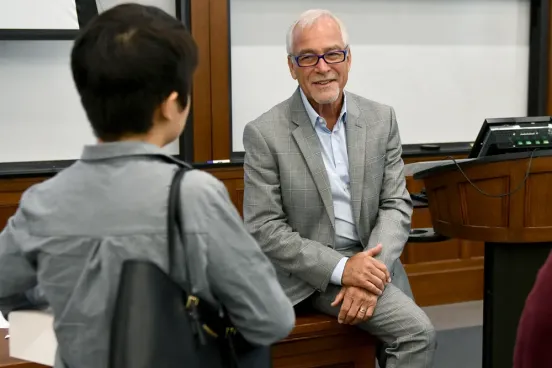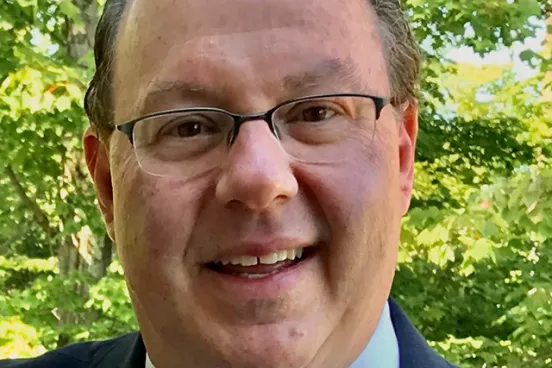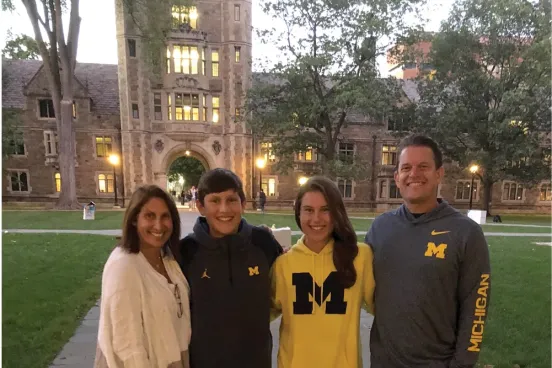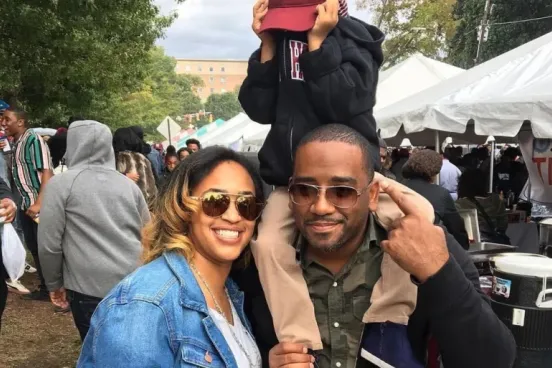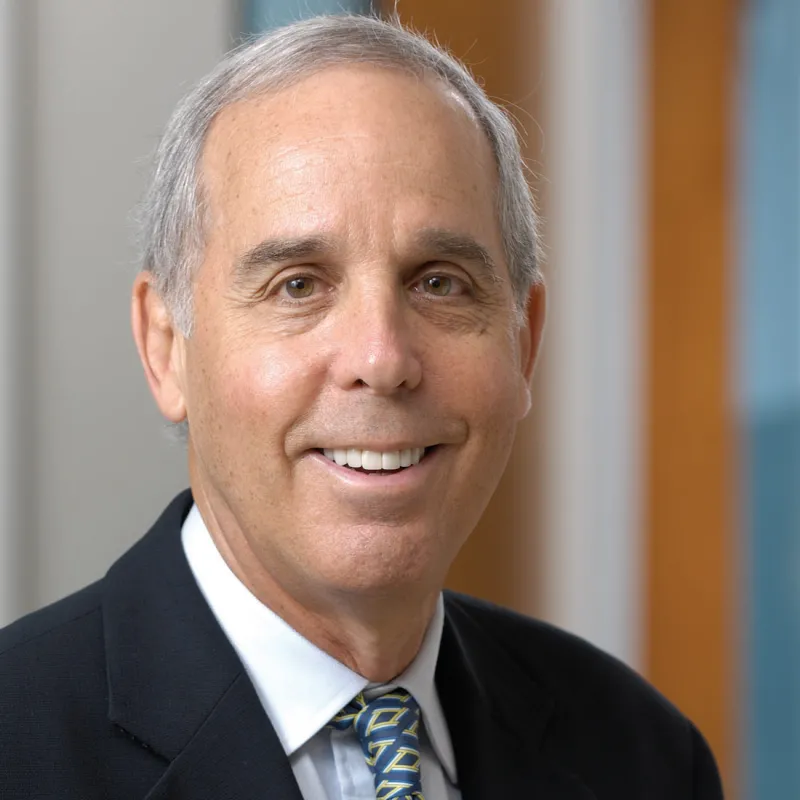
JEFFREY RUBENSTEIN, ’66, is a senior principal at Much Shelist PC in Chicago, where he represents businesses in the venture and middle markets across a broad array of industries, including public and private manufacturing, investment banking and financial services, health care, real estate, and technology.
An active member of the boards of directors of several public and private corporations, he served as a Chicago-based principal of Sachnoff, Weaver & Rubenstein Ltd. (now Reed Smith LLP) before taking on his current role nearly 30 years ago.
He also has spent the last 40 years teaching tax-related courses at the Chicago-Kent College of Law as an adjunct professor, holding visiting professorships in Thailand, China, Latvia, and Romania.
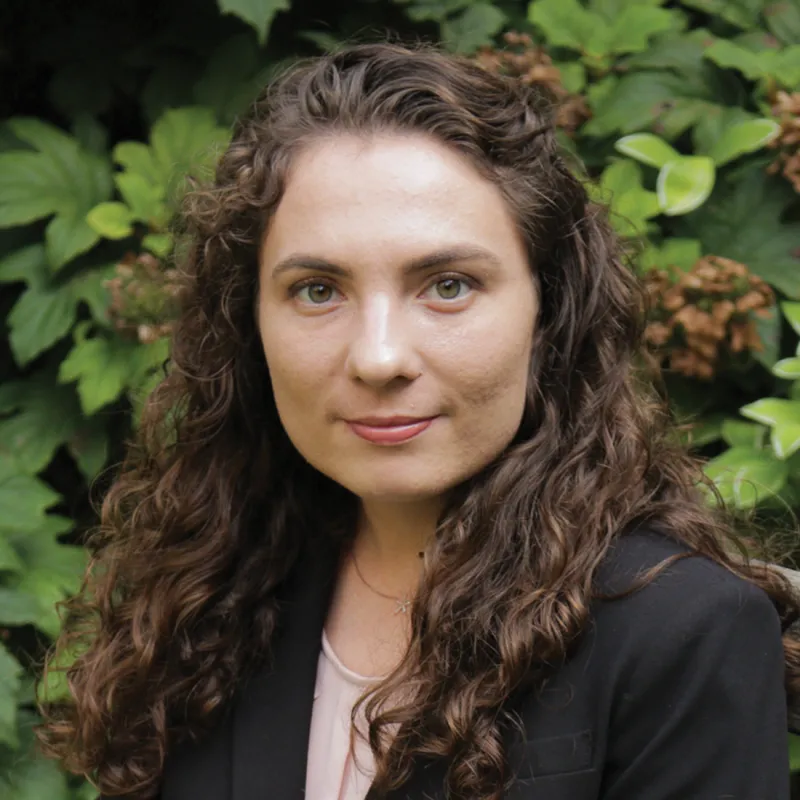
SIMONE PRINCE-EICHNER is a 3L from Lummi Island, Washington. After graduating from Pomona College in Claremont, California, she turned to the Midwest in her pursuit of a legal education and career in the public interest sector.
She came to Michigan with a focus on international human rights, which quickly evolved into a passion for civil litigation and environmental justice. She joined the International Refugee Assistance Project, Human Rights Advocates, and the Michigan Journal of Environmental and Administrative Law, and will have served three semesters as a student-attorney in the Civil-Criminal Litigation Clinic by the time she graduates. She also teaches undergraduate courses as a graduate student instructor. As a 1L, she interned at Accountability Counsel, an international nonprofit organization in San Francisco and, as a 2L, at the Washington State Office of the Attorney General.
This fall, she will clerk for The Hon. Rebecca Glasglow of the Washington State Division II Court of Appeals in Tacoma, Washington.
Why did you want to go to law school, and why did you choose Michigan?
Jeffrey: I liked economics and was comfortable with numbers. It seemed to me that in the practice of law, I could apply both. Never having been to a law firm, or even met a lawyer before, I applied only to the best law schools I knew of: Yale, Harvard, Michigan, and Chicago. It sounds strange today, but the latter two were my safeties. By the time I was admitted to Harvard, I already had made plans to go to Michigan, where I had fallen in love with the institution and Ann Arbor and was offered more financial support than at Chicago.
At Michigan, I met great and intelligent classmates; attended sports games, plays, and concerts; had a thriving social life; and received the full-time job offers that I sought.
Simone: I interned with Asylum Access, a refugee rights organization in Oakland, California, in college. That was the first time I thought seriously about pursuing a career in law. During that internship, I met Professor [James] Hathaway, an adviser to the organization. He suggested that if I decided to go to law school, I shouldn’t forget about Michigan. When I started applying a few years later, I did remember the Law School.
As someone who wants to pursue public interest work, being at Michigan has been crucial and a tremendous resource. I know the institution has a strong commitment to its students, but especially to those like me. I feel very grateful to be here. I wouldn’t want tobe anywhere else.
What was your favorite class?
Your favorite professor?
Jeffrey: When I was a student, it was a requirement to take one international law class and a seminar. I had neither going into the second semester of my 3L year. There was a seminar taught by Professor Eric Stein concerning law with respect to the United Nations, but it was only available to those who had already taken a basic international law course. I had not taken one, but Professor Stein agreed to let me sign up. During the semester, he asked me to co-author with him a journal article on the rights and protections afforded to UN diplomats and delegates. After reading my draft, he said it was well written. However, I told Professor Stein that it was boring as hell. He said, “You’re right. No one will read it. We can’t submit this article for publication.” I always will remember his thoughtfulness and encouragement. I kept correspondence with him for 40 years after my graduation. The last letter he wrote before his passing was to me. Among other things, it said that he truly appreciated our relationship. So did I, more than he likely knew.
Simone: I enjoy the Civil-Criminal Litigation Clinic for the hands-on experience, and because it confirmed my interest in litigation. I’ve worked with Professor Paul Reingold, who is a great lawyer, mentor, and instructor. In working with him, I’ve learned a lot in general, but especially about writing. Having that experience and his suggestions in the back of my mind paid off during my summer internship with the Washington State Office of the Attorney General. Labor Law with Professor [Kate] Andrias also stands out. She is so passionate about the subject that it spills over and is simply infectious. I think it made the experience of learning in her class especially dynamic and engaging.
Where was the best place to study when you were in law school?
Jeffrey: I would study hard the week before finals, attempting at once to memorize all the material. I would climb to the top floor of the Hatcher Graduate Library on the Diag and settle in the carrels. Bringing sufficient candy with me, I started at nine o’clock in the morning and would study until the library closed at 10 o’clock at night.
Simone: The Aikens Commons is the best place for social studying because of the natural light from the upper level and the lower level’s proximity to snacks, refrigerators, and a microwave. However, if I am studying a serious subject that requires intense focus, like my thick administrative law tome, I go to the underground library. Somewhere around Sub-2, I can usually find a spot where I alternate between sitting at a carrel, in a comfy chair, or standing.
In addition to studying law, what other activities have you engaged in at Michigan?
Jeffrey: After my first year of law school, I never read the cases or prepared my own outlines. Instead, I purchased commercial outlines. However, there were none available for Commercial Transactions, so another student and I decided to create and publish our own outlines called the Coif Series of Ann Arbor. In a few years, we became the second-largest outline publisher and were distributed by CliffsNotes throughout the United States. I still have a few copies of our outlines behind my office desk.
Simone: : As a graduate student instructor at U-M, I have taught in the College of Literature, Science, and the Arts Honors Program, including freshman and sophomore seminars and another course cross-listed in film, Near East, and Jewish studies. Last fall, I taught a core humanities course called Fall and Rise of the American Empire. I like teaching because it allows me to turn on a different part of my brain. It’s fun and always a challenge. I think it’s also good practice for being a litigator because in some ways you use similar skills to teach a class as you do when talking to a jury, which often involves breaking down and clearly communicating complicated information.
What does the Jeffrey and Susan Rubenstein Scholarship Fund mean to you?
Jeffrey: The scholarship that I have endowed supports students facing the same serious financial need I encountered when I attended law school. While I was lucky to receive a scholarship, I still required student loans in addition to working as a dishwasher, waiter, and campus representative for Philip Morris USA Inc., where I promoted and advertised events for Marlboro cigarettes. I was very fortunate to make partner at Sachnoff, Weaver & Rubenstein Ltd. just three years after graduation. Five years thereafter, my good fortune allowed me to pay back all of the financial support given to me by the Law School.
Simone: It means the opportunity to pursue my passion for public interest work. It’s an investment in the diverse interests that students like me have, and it’s a testament to the fact that our alumni are interested and engaged in what students are doing at Michigan now. It feels good to be connected to that sort of support system. Receiving this scholarship also inspires me to give back. It is a model I hope to follow in the future by paying forward what was given to me.


